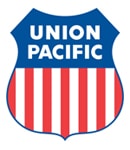KANSAS CITY, Mo. – Union Pacific Railroad has been ordered to reinstate an injured employee and pay the worker more than $85,000 in damages following an investigation by the U.S. Department of Labor’s Occupational Safety and Health Administration. OSHA found that the company, based in Omaha, Neb., was in violation of the whistleblower provisions of the Federal Railroad Safety Act for terminating an employee following the reporting of a workplace injury that occurred at the company’s North Platte, Neb., terminal.
Union Pacific has been ordered to pay $10,000 in compensatory and $75,000 in punitive damages, as well as reasonable attorney’s fees. The company must also remove disciplinary information from the employee’s personnel record and provide whistleblower rights information to its employees. Back wages were not sought.
“An employer does not have the right to retaliate against employees who report work-related injuries and safety concerns,” said Marcia P. Drumm, OSHA’s acting regional administrator in Kansas City. “Whistleblower protections play an important role in keeping workplaces safe. Workers should never be forced to choose between safe work practices and keeping their job.”
OSHA’s investigation upheld the employee’s allegation that the railroad terminated his employment in retaliation for reporting an injury and for reporting that a company chair was allegedly defective. The employee suffered an injury to his back on Oct. 15, 2012, when the chair he was using collapsed. The employee reported his injury to his supervisor and submitted a personal injury report, noting that the condition of the chair contributed to his injuries.
After the employee reported his injuries, the railroad removed him from service and accused him of violating the company’s workplace violence policy and other work-related rules, and subsequently terminated the employee.
OSHA’s investigation, however, found that the railroad terminated the employee in retaliation for having engaged in protected conduct under the FRSA, and that the railroad had engaged in hostility toward the employee for reporting the injury.
Either party in these cases can file an appeal with the department’s Office of Administrative Law Judges.
OSHA enforces the whistleblower provisions of the FRSA and 21 other statutes protecting employees who report violations of various airline, commercial motor carrier, consumer product, environmental, financial reform, food safety, health care reform, nuclear, pipeline, worker safety, public transportation agency, maritime and securities laws.
Employers are prohibited from retaliating against employees who raise various protected concerns or provide protected information to the employer or to the government. Employees who believe that they have been retaliated against for engaging in protected conduct may file a complaint with the secretary of labor to request an investigation by OSHA’s Whistleblower Protection Program. Detailed information on employee whistleblower rights, including fact sheets, is available at http://www.whistleblowers.gov.
Under the Occupational Safety and Health Act of 1970, employers are responsible for providing safe and healthful workplaces for their employees. OSHA’s role is to ensure these conditions for America’s working men and women by setting and enforcing standards, and providing training, education and assistance. For more information, http://www.osha.gov.
 ALBUQUERQUE, N.M. – Union Pacific Corp. has begun operations at a massive new railroad facility in southern New Mexico near both the U.S.-Mexico border and El Paso, Texas.
ALBUQUERQUE, N.M. – Union Pacific Corp. has begun operations at a massive new railroad facility in southern New Mexico near both the U.S.-Mexico border and El Paso, Texas.